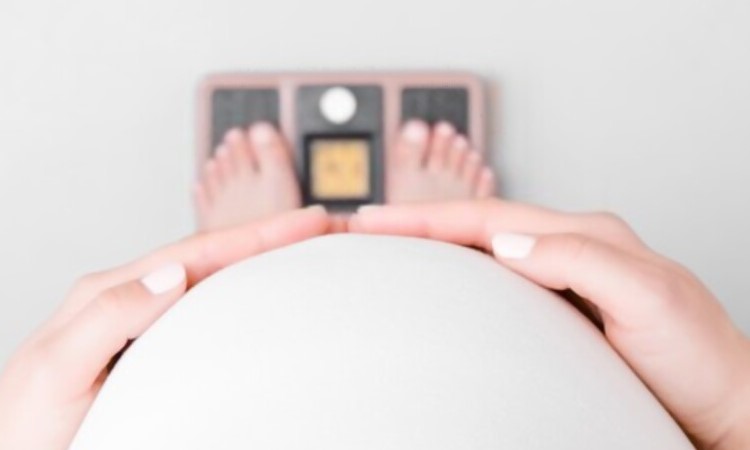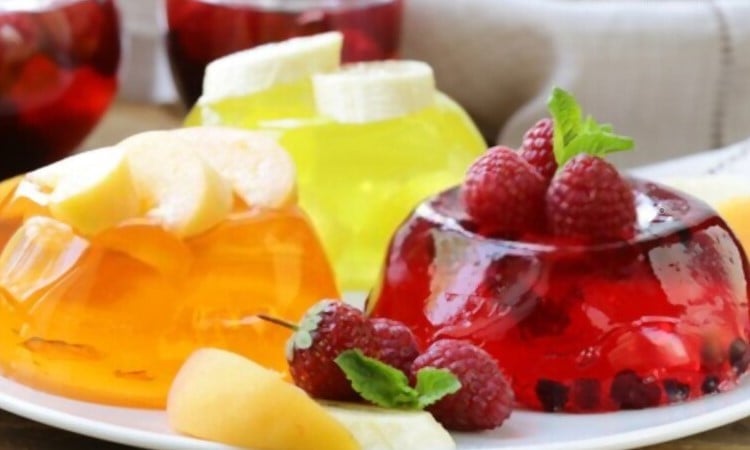Pregnancy brings in a lot of food cravings with many women developing a sweet tooth. In such times, you may be tempted towards eating jelly during pregnancy. However, it is not a good idea to indulge in a lot of sweets, especially during this time. Jelly during pregnancy acts as condiments to different kinds of snacks and can be easily prepared at home.
While craving for jelly during pregnancy isn’t unusual, the suggested option is to go for a healthier version by opting for fruit jelly. Fruit jelly meets your vitamins and minerals requirements and also is safe to consume during pregnancy. On the other hand, the other popular choice is consuming royal jelly during pregnancy. It is loved by many moms-to-be as this is a product made by bees from the nectar they feast on from the flowers.
If you are having thoughts regarding consuming jelly during pregnancy, in this article, we will cover them all.
What Is Jelly?
Jelly is a preserved form of fruit that is made with sugar, gelatin, flavoring agents, natural or artificial sweeteners, as well as natural food colorings or artificial food dyes. This is closely related to jam and preserves.
Jelly is more translucent and is made with juice rather than pieces of fruit. Jelly making is a good way to preserve fruit flavors for enjoyment throughout the year1.
The fruit juice is extracted by boiling crushed fruit or fruit pieces in water until soft. The peels and pulp are separated from the juice so it ensures a clean appearance.
Pectin –a type of fiber that is used in jellies to form a gel. This, when mixed with acid, is widely used to provide texture to fruit- and vegetable-derived products2.
Related Reading: How To Cope With Sweet Cravings During Pregnancy
Calculate Due Date With LMP
Craving Jelly During Pregnancy- Can I Eat?
It is safe to eat jelly during pregnancy. However, keep in mind that jelly often contains high levels of sugar as well as food coloring. Hence, it is best to enjoy the same in moderation. Alternatively, you can opt for jellies that contain no sugar.
The NHS recommends eating healthy snacks and plenty of fruit and vegetables during pregnancy. This will provide you and your growing baby with essential vitamins, minerals, and fiber. You can whip up some homemade jelly with a variety of fruits3.
Jelly is not a healthy food to add to your everyday diet. However, if you are craving strawberry jelly during pregnancy or grape jelly during pregnancy, pair it with protein like cheese or turkey breast to make it healthier.
Also, jelly should be limited during pregnancy as it could lead to gestational diabetes, insulin resistance, or problems with rapid weight gain due to its high sugar content.
Related Reading: Eating Pineapple During Pregnancy-Safety, Benefits, And Risks
What Are The Benefits Of Eating Jelly During Pregnancy
Jelly is one of the desserts loved by people across age groups. The composition of jelly varies according to climatic conditions and geographic location. Royal jelly during pregnancy is considered a healthy option as it serves as a natural ingredient to boost immunity and fight against aging effects.
Jelly can be added to your diet always in moderation. Jelly when made at home can be made using ingredients that are high quality to make you eat healthily. Also, you can skip artificial flavors and food coloring.
Listed below are the health benefits of eating jelly during pregnancy.
1. Jelly facilitates digestion
Due to its high water content, jelly facilitates digestion and intestinal transit. The gelatin in jelly increases peristaltic movements in the intestinal muscles. It improves the digestion process and absorption of vitamins and minerals making you free from stomach ailments.
Also, jelly made with fruits contains a high proportion of fiber which regularity in the digestion process helps control cholesterol levels4.
2. Jelly strengthens bones
The proteins, lithium, phosphorus, and copper, found in gelatin help to keep the bones strong. It also helps in increasing the skeleton’s mineral density. Gelatin also acts as an important defense mechanism against osteoporosis, while the amino acids present in it help to fight arthritis5.
3. Jelly keeps the appetite full
Hunger pangs are common during pregnancy. It is not uncommon to feel hungry all the time. when pregnant. The consumption of jelly during pregnancy fills your stomach and helps you feel full for a longer time due to its protein content6.
4. Sleep quality

We all know sleep is a luxury during pregnancy and sleep deprivation is a common woe. Glycine – one of the ingredients in the gelatin of jelly improves sleep quality and stimulates neurotransmitters and enzymes that increase the quality and duration of sleep7.
5. Jelly improves skin and hair
According to a study, women who took on gelatin supplements showed positive results in improving the appearance of skin and hair as collagen is the main component of gelatin. 28% of women experienced an increase in skin moisture after eight weeks of taking pork collagen and a 12% increase in moisture after taking fish collagen8.
Similarly, research shows that taking gelatin can also improve hair thickness and growth9.
Related Reading: Aloe Vera During Pregnancy- Is It Safe To Use
6. Jelly helps manage blood sugar levels
According to a study, Glycine, an amino acid present in gelatin, may help people with type 2 diabetes manage their condition10.
However, a few gelatin-based foods, such as gummy candies, may have high sugar content. This needs to be avoided for those people with type 2 diabetes.
7. Jelly is good for gut
The presence of gelatin in jelly plays an important role in maintaining good gut health. According to a study, gelatin helped in preventing the gut wall from damage amongst rats11.
Also, Glutamine – an amino acid present in gelatin has been shown to improve the gut wall and help prevent a “leaky gut”.12
Related Reading: 7 Signs Of Low Potassium (Hypokalemia) During Pregnancy And 5 Ways To Deal With It
Side Effects Of Eating Jelly During Pregnancy
As mentioned above, jelly contains too much sugar and carbohydrates. There is no harm if the same is taken in moderation. However, if you have gestational diabetes or are insulin resistant, you should limit your intake as it can have adverse effects on you and the unborn baby.
Below are the side effects of eating jelly during pregnancy.
1. Can lead to weight gain

Indulging in too much jelly can lead to faster weight gain. If you gain too much weight during pregnancy, it could cause the following complications for the mother and the unborn baby.
- Gestational diabetes
- High blood pressure
- Complications during birth
2. Artificial colors used can cause adverse effects
Most jelly contains artificial colors that are made with ingredients derived from petroleum that may have harmful effects on your health. According to a study, artificial colors are linked to behavioral changes in children with or without ADHD13.
3. Can cause inflammation
Jellies are made with artificial sweeteners such as aspartame and sucralose. According to a source, aspartame can lead to cell damage and cause inflammation14.
Related Reading: Everything About Artificial Sweeteners During Pregnancy
4. Jelly during pregnancy can cause allergies
Though allergy relating to jelly is rare, it is possible. Its allergic reaction could include hives or life-threatening anaphylactic reactions15.
Related Reading: 9 Natural Remedies For Allergies During Pregnancy That Are Perfectly SAFE
How To Safely Eat Jelly During Pregnancy

Jelly during pregnancy is safe only when consumed in moderation. Jelly ideally contains high sugar and artificial coloring which is unsafe for you and the baby. If you want to consume it, opt for the one with no added sugar. Alternatively, see if you make your own jelly or if you can buy jelly made out of natural sugar.
Experts recommend consuming royal jelly during pregnancy as it has essential nutrients and beneficial properties for overall health. Keep in mind that not all honey contains royal jelly. According to a source, consuming royal jelly during pregnancy may be an effective remedy to combat depression16.
FAQs
Many experts say that healthy snacking is the best way to keep your pregnancy going. On this note, consuming peanut butter and jelly during pregnancy in the form of a sandwich could be a healthier option as it is a nutritionally balanced food that is filled with proteins, healthy fat, fiber, and the required nutrients.
It is alright to enjoy peanut butter as long as you are allergic to it. Also, peanut butter and jelly are safe to eat during pregnancy, depending upon the amount of sugar present in them.
Jelly on a whole isn’t nutritious when compared to the essential nutrients found in whole fruit. Also, it contains too much sweet content like fruit juice along with sugar. Furthermore, jelly has a high amount of refined sugar added to it. Including jelly once in a while is okay because you are unlikely to eat large quantities. However, if you are going to enjoy peanut butter and jelly during pregnancy daily, you need to consider replacing jelly with jams, preserves, or fruit slices.

